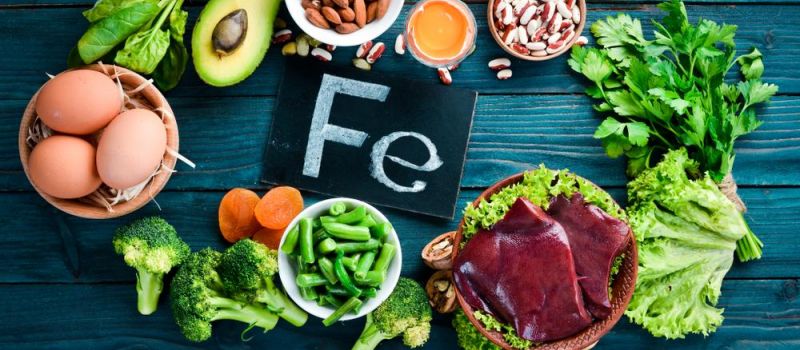Diet for iron deficiency anemia
By Canada Cloud Pharmacy | Published Wednesday 14 April 2021

Have you been experiencing fatigue every day that affects your routine? It may be due to a deficiency of iron. Your body needs iron to produce hemoglobin that is a carrier of oxygen and carbon dioxide in the blood. If your body is not able to get enough iron, it affects the synthesis of hemoglobin in the red blood cells and as a result, you may suffer from iron deficiency anemia.
The signs of iron deficiency may not be visible unless you suffer from anemia. Iron deficiency is the most common nutritional deficiency that affects the American population, and it is also the most common cause of anemia. The most vulnerable group being pregnant women, young children and adolescent girls.
Although your doctor will treat the condition with iron supplements, a balanced diet rich in iron and vitamin C helps in getting the necessary iron. Let us see which food items are recommended for iron deficiency anemia.
How will the body use iron from the food you eat?
When you eat an iron-rich diet, this iron is mainly absorbed in the blood through your small intestine. Iron in the diet is available as heme and non-heme part. While animal sources such as poultry, red meat or seafood provide the heme portion and the non-heme portion can be taken from the plant sources. The recommended daily intake of iron is 10 mg for men and 12 mg for women.
Which foods provide iron?
Including the following food items in your daily diet may prevent iron deficiency anemia and will also help in managing the depleted iron stores by providing enough iron.
-
Leafy green vegetables: Dark leafy vegetables are rich in the non-heme iron portion. Spinach and kale are rich sources of iron. Swiss chard, red bell peppers and collard greens contain vitamin C that helps in iron absorption.
-
Fruits: Fruits rich in vitamin C such as oranges, lemon and strawberries help in iron absorption. Including these fruits in addition to your iron-rich veggies improves iron absorption.
-
Beans and lentils: Beans are a good choice of iron-rich food for vegetarians. Kidney beans, black beans, chickpeas, black-eyed peas, peas are rich in iron.
-
Fortified food: Food products such as cereals, rice, fruit juices, bread flour fortified with iron can also be good sources of iron.
-
Nuts: Nuts and seeds not only make salads interesting they also taste great for snack time. Cashews, pistachios, pine nuts and pumpkin seeds are iron-rich.
-
Meat and poultry: All meat and poultry products are rich sources of heme iron. Red meat, lamb, chicken give a good amount of iron. The liver from the meat is rich in iron and folate.
-
Seafood: Most of the fish are rich sources of iron. Mackerel, salmon, tuna, oysters, clams, crabs and shrimps are iron-rich seafood.
A healthy and balanced diet is necessary to get enough iron. Combine iron-rich food with food containing vitamin C and beta carotene, which will help in iron absorption in the small intestine. Discuss with your doctor regarding iron supplementation and an iron-rich diet to manage iron deficiency anemia.



 Canadian Company
Canadian Company 



 Sign In
Sign In
 Home
Home 
 About Us
About Us 
 How to order
How to order 
 Products
Products 



